This Week in Comics Journalism-- July 2nd, 2022
A look at recent news in comics, including the new Marvel Penguin Classics, Doonesbury, Gender Queer, Maus, Red Room, DC's Pride Special, and Clementine.
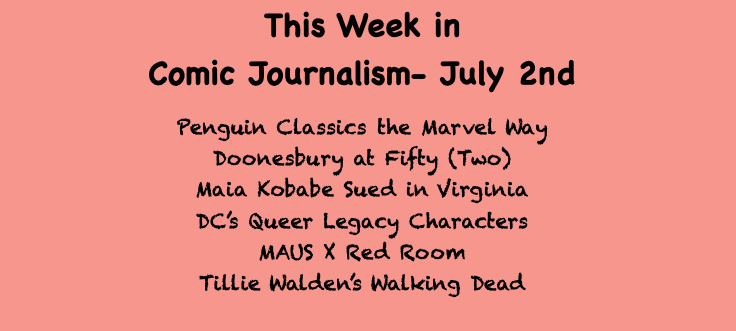
I took a bit of an unplanned break last week so let's catch up on a few of the things that have caught my attention recently.
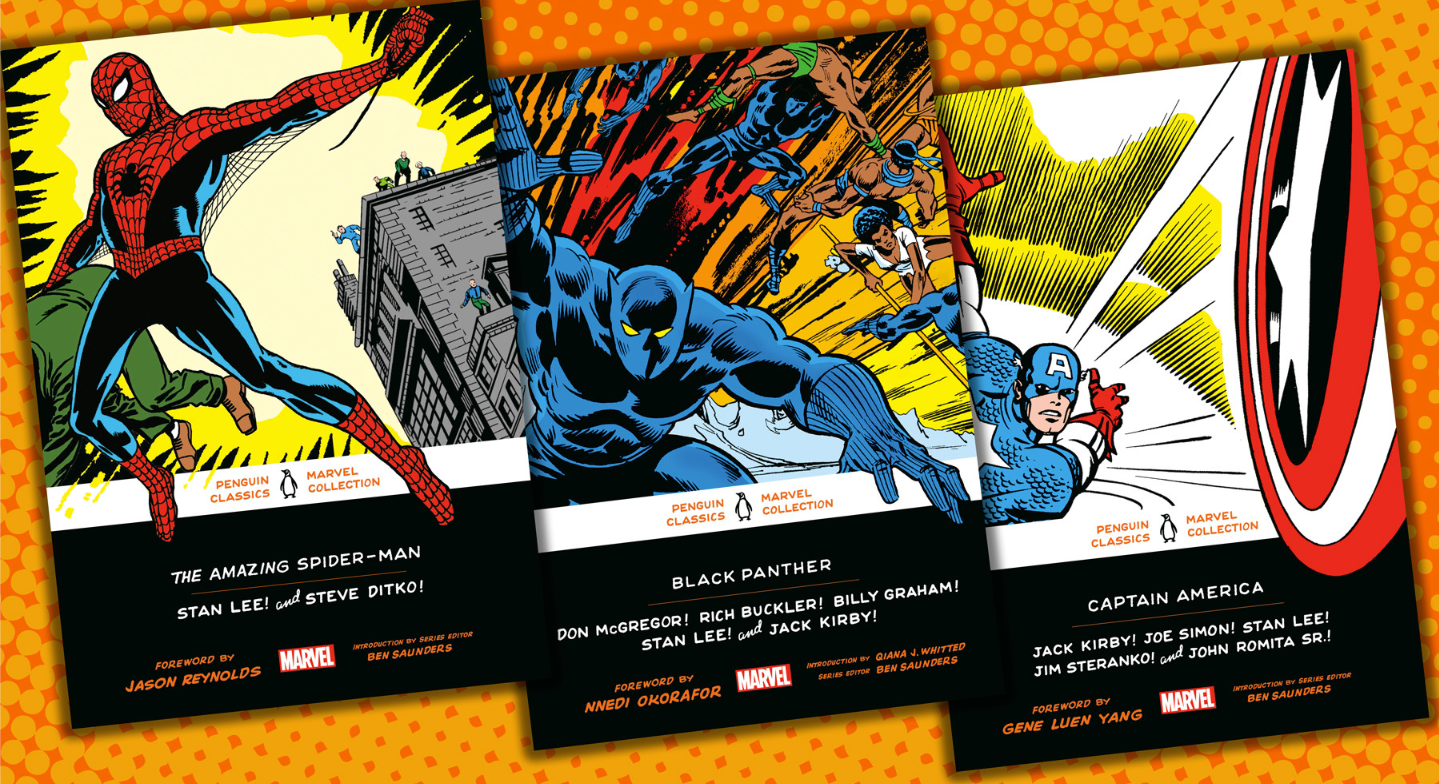
Rolling Stone has turned up their coverage of comics a bit lately. Last time we linked to an interview with Grant Morrison and this time, RS's David Fear spotlights the new Marvel series of Penguin Classic books.
For others, it’s a validation that what was once considered disposable and a pulpy guilty pleasure at best — and the literary equivalent of junk food that caused juvenile delinquency at worst — can be taken a little more seriously and evaluated with a more appropriate amount of intellectual, sociopolitical heft. Not that comics fans needed validation (MCU movie culture is mainstream culture now) or that superheroes needed to be “rescued” from the dustbins of history. It’s more that these are the closest things we have to modern mythologies, and these tales of gods and monsters, heroes and villains aren’t just childish things to be put away after childhood’s end. They deserve to be discussed in the same breath as other classics of the literary form.

Doonesbury is one of those formative comics for me. I don't know where I fall along the spectrum of its characters (I'm not Zonker, but I hope I'm also not completely a Mike at this point in my life.). Still, I remember finding the strip during its second decade, somewhere during the 80s when Reaganonimics was running wild in the land and it helped teach me a bit to question everything.
Like an old friend, I've lost touch with it over the years although a couple of years ago, I spent some time with Trudeau's collection that focused on Donald Trump. And then in our Covid years, the series celebrated its 50th anniversary. Two years later for The Comics Journal, R.C. Harvey reflects on Garry Trudeau's work and what it has meant to a lot of us.
The words and the pictures in Doonesbury do work together. One comments on the other - while each retains an independent (albeit sometimes absurd) sense of its own. With this deployment of the resources of the medium, Trudeau has taken the art of the comic strip a step further. He has made the very nature of the medium—the relationship of word and picture—the vehicle of his humor and his comment. In a much more specific sense than in other strips, in Doonesbury the medium is message.
I think I may need to dig out a few of those old collections and catch up with Mike, Zonker, and especially Raoul Duke.

For Book Riot, Kelly Jensen covers the continued attacks on Maia Kobabe's Gender Queer in Virginia, which has now escalated into a politician suing Kobabe and Oni Press as "obscene for unrestricted viewing by minors..." and offers the following defense for the book:
As indicated before, obscenity laws demand examining a work in relation to its whole. Gender Queer is a book published for adult audiences, and the small excerpts making the rounds on social media featuring sex are age-appropriate and not representative of the whole of the book.
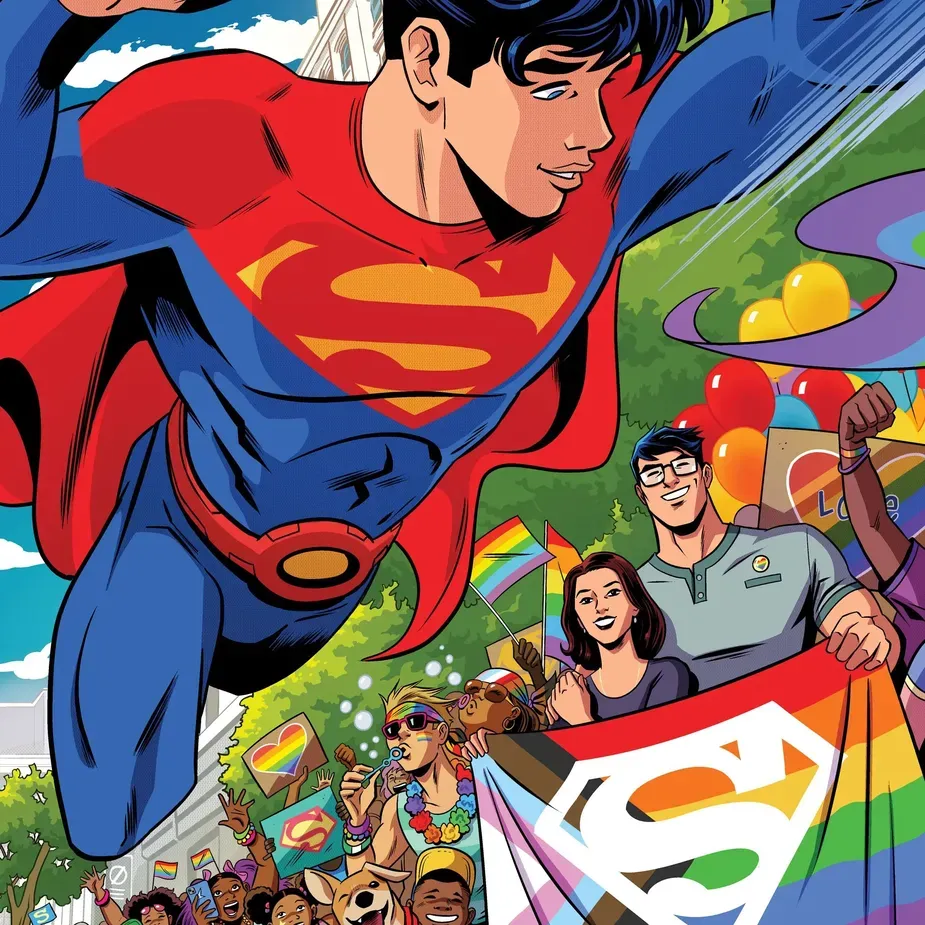
Polygon's Zack Rabiroff takes a look at the new generation of queer legacy characters at DC.
Case in point, this year’s DC Pride special, the company’s second annual showcase of an increasingly sizable stable of LGBTQ characters. Of the 12 stories housed in this year’s installment, half centered on out-of-the-closet legacy iterations of established characters.
And if there’s a running theme that winds through each of these stories, it’s about the weight of legacy and reputation on the ability of these newer heroes to embrace their own sexuality… and whether sexual identities and superhero identities can coexist in the public eye.
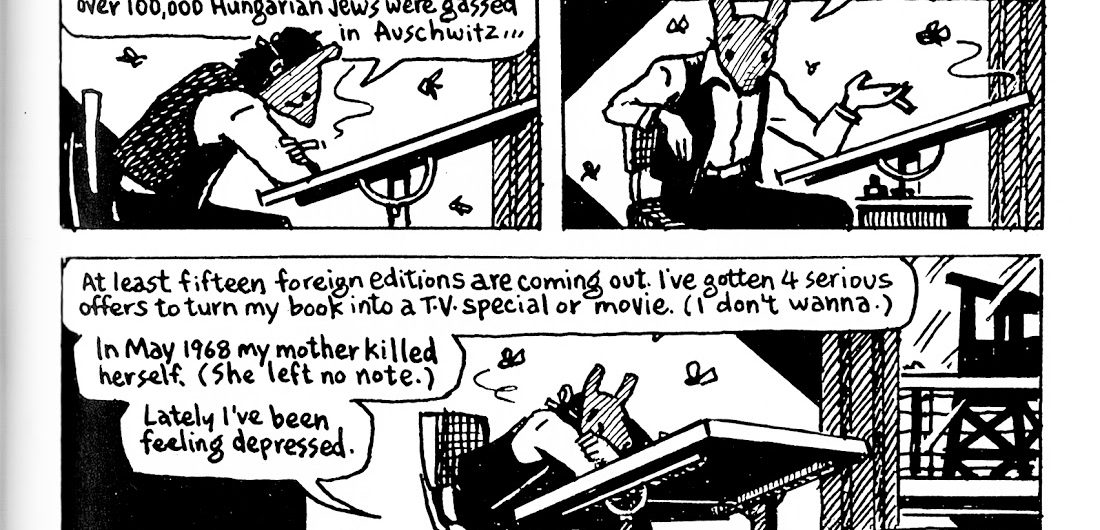
For Solrad, Alex Hoffman explores Art Spiegelman's MAUS, Ed Piskor's Red Room (including Jim Rugg's MAUS-inspired unpublished variant), and how cartoonists have used Spiegelman's work to either dialogue with their own work or just sample it as a marketing tool. And he also examines how the audience's reaction to these works makes them complicit in what the books are or aren't saying.
But if silence is damning for Piskor, for whom it implies greed and complicity, isn’t silence to Red Room and the Maus parody cover damning for readers as well? That silence speaks to the ways in which we as readers and as critics have desensitized ourselves to the trauma of others, no matter how boring or banal the source material. Perhaps it is the American culture of spectatorship which, as Sontag notes, has “neutralized the moral force of [images] of atrocities”(Sontag, 2004). The boredom I felt when reading Red Room: Trigger Warnings #1? Perhaps, as Wordsworth warned, sentimentality, indecency, and overstimulation have led me to a “savage torpor.” And perhaps, the prurient interest in Rugg and Piskor’s work is worth a second consideration; why are readers so greedy for the pornographic desire to see bodies in pain?
I'll admit that I've continued to get Red Room but haven't been able to read it at all since the controversy of the variant cover came to light. For a while before that, I was giving Piskor (and Rugg) some leeway to be building to something, to actually have something to say with this work. I give Piskor props for his skills a bit more than Alex does but I recognize an unexamined aspect in Piskor's work. There are questions that it poses that Piskor seems to have no interest in actually exploring. This may be the ultimate art-for-art's-sake book that's just ignorant about anything that it's actually doing.
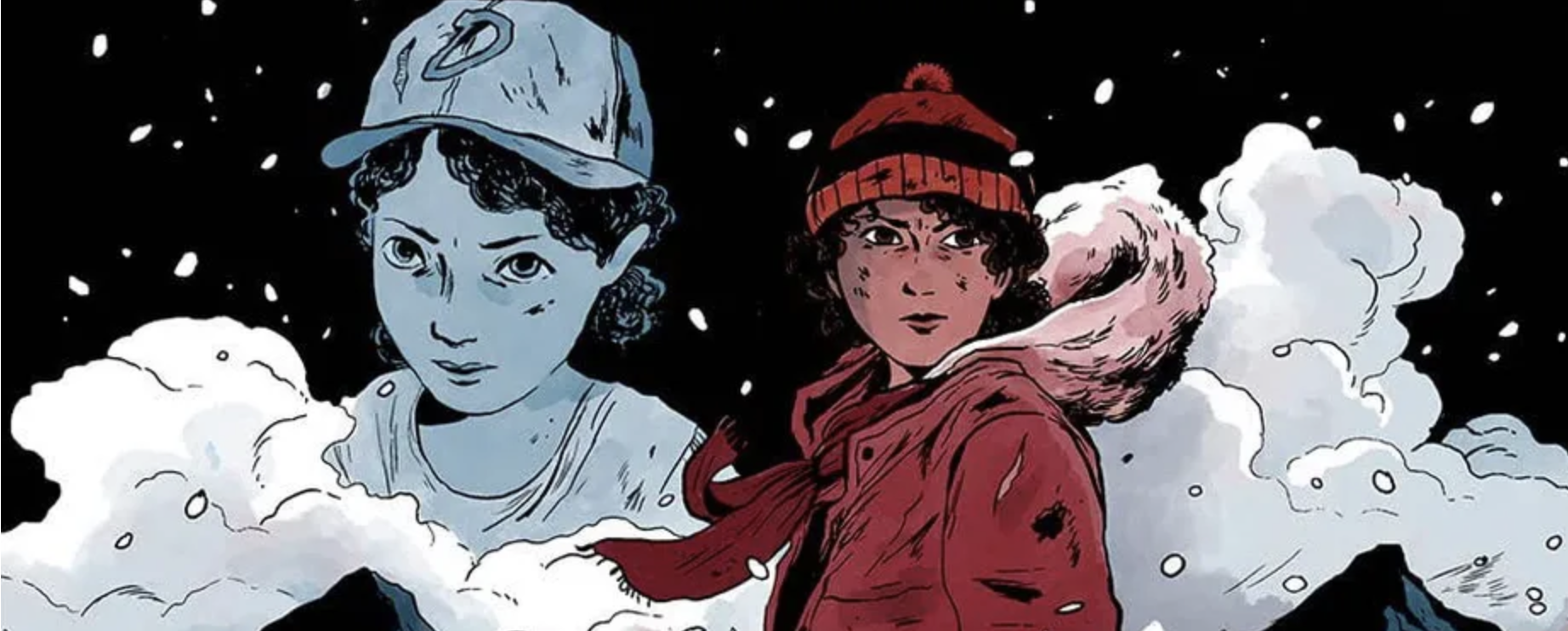
And one more from Polygon this week, a wonderful examination from Rosie Knight of Tillie Walden's Clementine.
That idea of a broken world that could become a better one is key to the appeal of zombie storytelling and dystopian fiction in general. “I think it’s a very weird fantasy to be like, I am here at the end of the world and I get to remake the world in my own image now, I get to choose who I’m with, which is really, really special,” Walden shared. It’s an idea that also resonates in terms of the unexpected accessibility of The Walking Dead. “There have been some papers written about how the Walking Dead universe is actually a really interesting commentary on how the world could sort of remake itself to accommodate the sheer amount of disability that would show up because of the mechanics of how Walker bites work.” It’s a great point and an idea that Walden is keen to continue exploring in Clementine: Book One and beyond.
The piece includes an interview with Walden, where she talks about the current pressures put on queer comic creators:
[Walden] continued, “I do think there’s still a pressure and a tendency for a lot of queer comics to focus on pain. Of course people will still want to write about their pain and they should, but I feel like I’m beginning to see a trend of people who are queer but go on an adventure unrelated to their queerness.” That leads into one of Walden’s biggest wishes for the industry as it moves forward. “I hope that publishers are starting to realize that they don’t have to hire a person of color or queer person to just tell a story about their marginalization. They should just hire them and let them do whatever fuckin’ story they want to.”


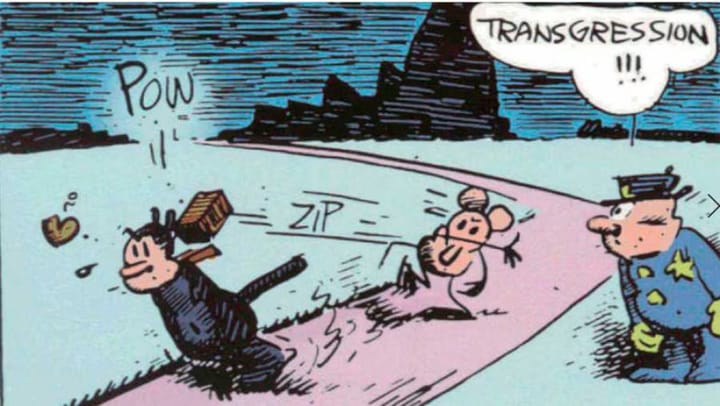


Comments ()